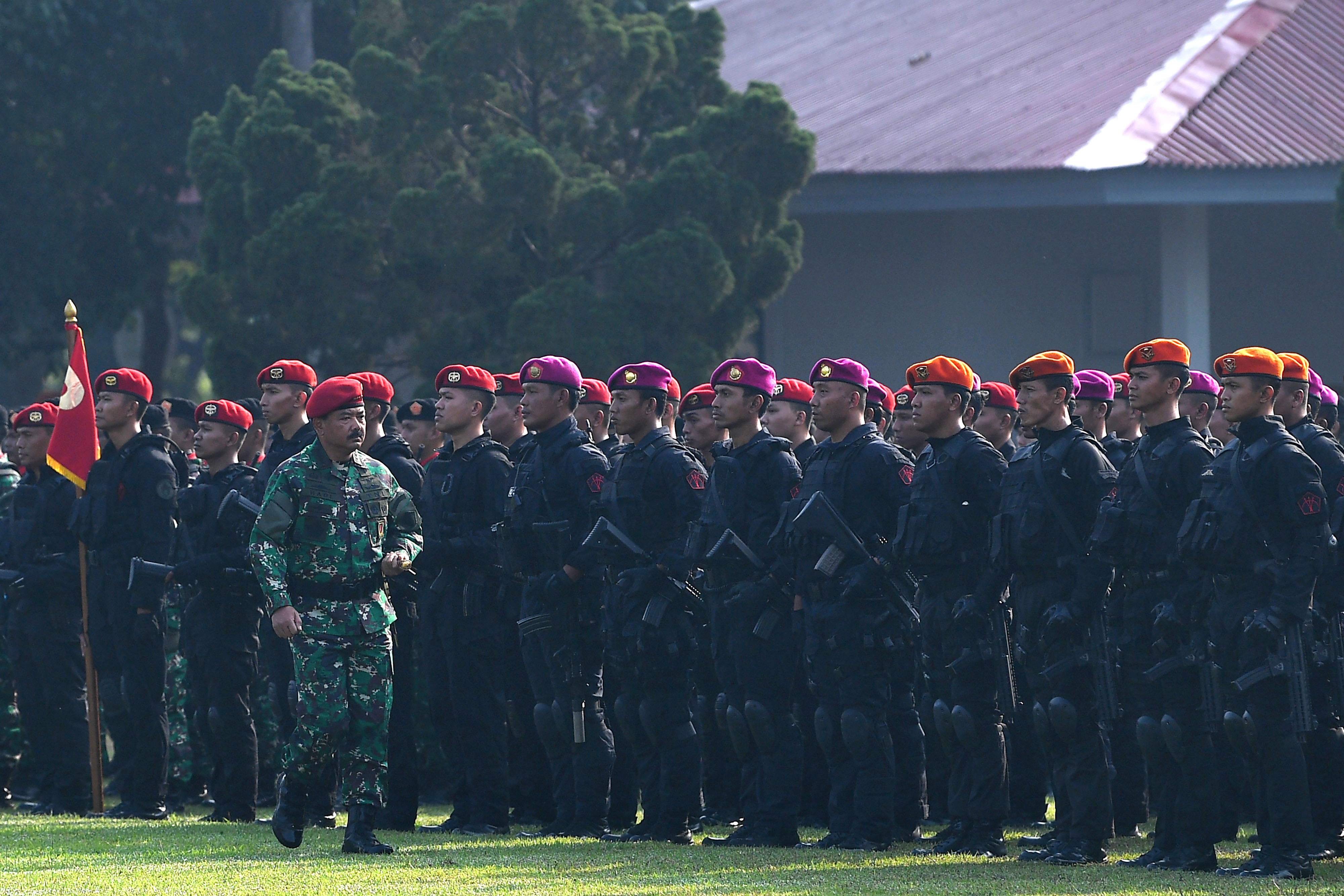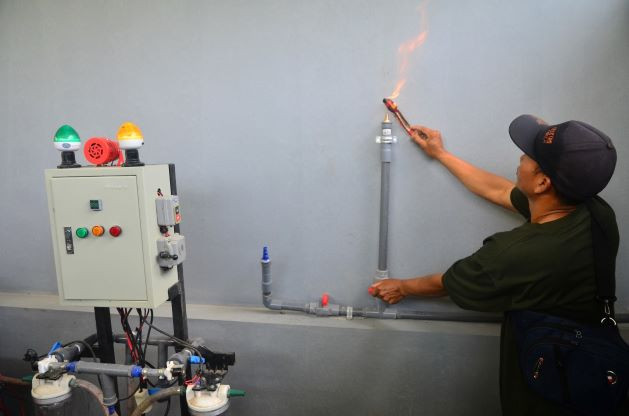Popular Reads
Top Results
Can't find what you're looking for?
View all search resultsPopular Reads
Top Results
Can't find what you're looking for?
View all search resultsBalancing TNI professionalism, modernization, regional cohesion
Taxpayers demand that the increased budget for the Indonesian Military (TNI) — the sole guarantor of state defense and whose 74th anniversary falls today on Oct. 5 — should be in line with an improvement in professionalism and performance.
Change text size
Gift Premium Articles
to Anyone
T
he plenary session of the House of Representatives on Sept. 24 was special for the Defense Ministry as the House approved the allocation to the ministry of Rp 127.4 trillion (US$9 billion) in the 2020 budget. The amount not only indicates the increasing trend in budget allocations for the ministry since the Reform Era began in 1998, but also shows that the defense budget will top the list of budget allocations for all ministries and institutions next year.
Such a significant budget increase for defense is inseparable from the heated debate over security and defense ahead of the April 17 presidential election when then-presidential candidate Prabowo Subianto highlighted the relatively small defense budget compared with that of our tiny neighbor Singapore; the retired military officer associated the small defense budget with Indonesia’s weak defense capability in the region.
Granting the highest budget for defense suggests that President Joko “Jokowi” Widodo’s administration took the presidential election debate on security and defense seriously. However, taxpayers demand that the increased budget for the Indonesian Military (TNI) — the sole guarantor of state defense and whose 74th anniversary falls today on Oct. 5 — should be in line with an improvement in professionalism and performance.
Talk about military professionalism and performance in the Reform Era has been associated with the ongoing Minimum Essential Force (MEF) military modernization program.
The MEF, a 15-year scheme or medium-term plan designed to support the TNI in replacing its obsolete weaponry, was introduced in 2010 by Jokowi’s predecessor Susilo Bambang Yudhoyono.
It will end in 2024, the final year of President Jokowi’s second term. Included in the shopping list are the fourth generation of jet fighters for the Air Force, the ongoing joint production and development of submarines with South Korea for the Navy, as well as infantry, artillery and armored weapons procurement for the Army.
In terms of skills and capability, the fact that Army personnel have been frequent champions in the annually held ASEAN Armies Rifle Meet and Australian Army Skill at Arms Meet is evidence of their comparable skills against other advanced militaries worldwide.
And the fact that the troops used locally made SS rifles — produced by state-owned weapons manufacturer PT Pindad — in both international shooting competitions also reflects the country’s significant weapons-manufacturing capacity, although still limited to gun and rifle production and technology.
Apart from Pindad with its gun, rifle and armored vehicle production, Indonesia has also been developing the capacity to produce naval ships through state-owned shipbuilder PT PAL and noncombat aircraft through state-owned aircraft manufacturer PT Dirgantara Indonesia (PTDI).
There have been a number of foreign buyers of products by PAL and PTDI, but they are still negligible compared with advanced foreign producers.
Besides weaponry modernization schemes, the Reform Era has also seen significant restructuring of the TNI's organization. The restructuring scheme, based on a 2016 presidential regulation (Perpres) on the organizational structure of the TNI, is a revision of the 2010 version that increased the number of personnel in certain positions and created new posts for high-ranking officers in the three branches of the armed services.
The restructuring program initially drew strong criticism from observers and experts, who claimed it would run counter to the spirit of professionalism that had been the national commitment to reform.
However, later developments that saw numerous medium- and high-ranking TNI officers holding no structural posts has led to the creation of new units within TNI structures.
In late July, a “super elite unit” for deployment in national security emergencies, including terror attacks, was established. The unit, dubbed the Special Operations Command (Koopssus), comprises 400 personnel from the crème de la crème of the military’s special forces: the 81 Special Detachment (Gultor) of the Army’s Special Forces (Kopassus), the Jalamangkara Detachment (Denjaka) of the Navy’s Marine Corps and the Bravo 90 Detachment (Denbravo) of the Air Force’s Special Forces Corps (Korpaskhas).
Late last month, the TNI introduced the Joint Defense Regional Command (Kogabwilhan) in three separate territories of the country: one based in Tanjung Pinang, Riau Islands province, another in Balikpapan, East Kalimantan, and the third in Biak, Papua. The new units are tasked with dealing with crisis situations in their respective theaters of operations.
The modernization and restructuring programs of the TNI have not always been welcomed, either at home or abroad. That Indonesia is in the process of procuring jet fighters and increasing the number of submarines and warships in its naval fleet, as well as expanding its military units, will no doubt increase levels of unease among other countries, particularly our neighbors. As on many occasions, one country’s military buildup encourages others to improve or expand their own.
The MEF scheme is mainly meant for replacing obsolete weaponry and equipment. However, perhaps Indonesia should accentuate that its military modernization program is not associated with the mandala theory of foreign policy as formulated by ancient Indian political scientist Kautilya, in which “neighbors are considered as enemies and the enemy of my enemy is my friend”, so as to prevent others, and especially our neighbors, believing that Indonesia is a military threat to them.
Striking a balance between military professionalism, modernization and regional cohesion is not an easy thing to achieve. But, it is not impossible either.









